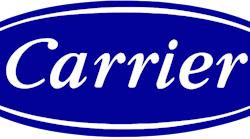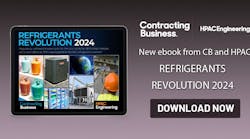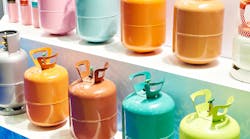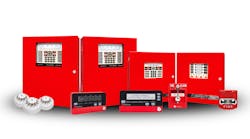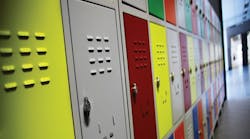Classroom air quality and thermal comfort significantly impact student performance. Couple that with the fact annual utility costs average $182 per student, and the importance of keeping school HVAC systems well-maintained and operating efficiently becomes clear. Effective HVAC operation cannot be realized without a comprehensive facility-maintenance program. A good maintenance program is built on a foundation of prevention. Preventive maintenance often is best performed when equipment is not being used. For schools, such a time is summer break. The following is a list of what school administrators need to know about summer HVAC preventive maintenance. Many of the tasks discussed are routine and can be performed by school facilities staffs, while others may require qualified service personnel.
Prior to Summer
1. Audit your facilities and equipment.
Make a list of systems to be maintained and defects in need of correction. This will help you to be systematic in your approaches to preventive maintenance and equipment repair and replacement. Also, it will assist you in establishing accurate budgets for annual maintenance and larger capital upgrade and replacement projects.
2. Create a database of maintenance procedures and schedules for all equipment.
Manufacturers’ operation and maintenance manuals are a good place to start. Usually, they contain guidelines about the frequency of preventive service, as well as a complete list of items that must be maintained.
3. Communicate the maintenance plan to district staffers to avoid scheduling conflicts.
Often, other activities, such as cleaning, necessitate certain equipment being operational at certain times during summer.
During Summer: Equipment
4. Tune up HVAC equipment as dictated in the owner’s manuals.
This will help maintain peak operating efficiency and lengthen service life. In particular, servicing of heating equipment (e.g., boilers) should be completed, as the equipment typically is not needed during summer. This also is a good time to conduct heating-related preventive-maintenance work, such as boiler re-piping and pump replacement.
5. Clean or replace HVAC air filters.
Air filtration is critical to heating and cooling. Filters keep your systems clean and help to maintain efficiency. Operating equipment with a clogged filter or no filter at all can result in decreased comfort, increased utility costs, expensive repairs, and shortened equipment life.
6. Comb condenser fins on air-conditioning equipment and clean/vacuum condenser coils on kitchen refrigerators as needed.
Power-wash any debris that may be lodged in fins. Cleaning condenser coils helps equipment cool more efficiently, extends equipment life, and reduces power consumption.
7. Oil or grease pump and fan motors.
Be sure to consult the manufacturer’s instructions to be sure you are using the correct type and amount of lubricant.
During Summer: Systems
8. Check equipment controls.
Ensure sensor calibration is maintained. Review control sequences to ensure appropriateness for the application, and perform functional testing. Update written sequences to reflect current operating parameters.
9. Create a simple form for recording periodic preventive-maintenance activities.
10. Look inside air-handling systems for obstructions.
I have found paper, pencils, and balls inside of equipment. You would be surprised how creative kids can be in this regard. Such obstructions impede airflow and proper unit operation.
11. With piping systems, clean strainers, and check glycol levels, fluid condition/chemical treatment, and system pressures, and compare them to design values.
12. Exercise newer piping shut-off valves.
As for older valves, it may be better to leave them alone, as exercising older valves can cause the valves to leak.
13. Keep a record of maintenance and repair expenses.
This assists in developing accurate budgets and pinpointing problematic equipment.
Conclusion
Following these simple procedures will allow you to take greater control of your facility, reduce operating and maintenance costs, avoid unplanned shutdowns, and extend equipment life.
A member of HPAC Engineering’s Editorial Advisory Board, Peter D’Antonio, PE, CEM, LEED AP, is president of PCD Engineering Inc., provider of building energy analysis, mechanical/electrical design, and commissioning. His work has been recognized with design and service awards from organizations such as the U.S. Environmental Protection Agency, the U.S. Green Building Council, the Colorado Governor’s Energy Office, and the Colorado Renewable Energy Society.
Did you find this article useful? Send comments and suggestions to Executive Editor Scott Arnold at [email protected].


